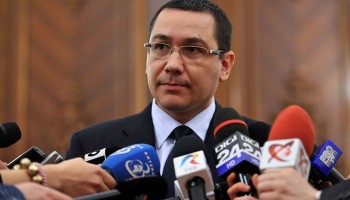Adina Florea had been nominated by the Minister of Justice in October but according to a statement from President Klaus Iohannis’ office, “the President of Romania rejects the proposals” of Florea and of “other prosecutors that had been submitted.”
Florea’s nomination had been understood, according to Reuters, as part of a scheme by the ruling Social Democrats (PSD) to influence judicial independence in one of the most corrupt countries in the European Union.
The European Commission castigated Romania earlier this month for regressing in its anti-graft reforms.
“I regret that Romania has not only stalled its reform process, but also re-opened and backtracked on issues where progress was made over the past 10 years,” Commission First Vice President Frans Timmermans, OCCRP reported at the time.
The report cited “pressure on judicial independence and on the National Anti-Corruption Directorate (DNA) in particular.”
The Commission also condemned early this year controversial changes to the criminal code that overhauled the abuse-of-power legislation. In August tens of thousands took to the streets of Bucharest in anti-government protests that quickly turned violent.
In July, Iohannis bowed to pressure and fired the agency’s chief prosecutor, Laura Codruta Kovesi in compliance with a Constitutional Court ruling supported by PSD. She had been accused of abuse of power, yet had significant backing from anti-graft supporters.
While speaking to a judicial advisory panel last month, Florea had told the panel that anti-corruption prosecutors should not be involved in abuse of office cases, according to Reuters. The outlet reported that around one-third of cases that her office would investigate would be on abuse of office.






